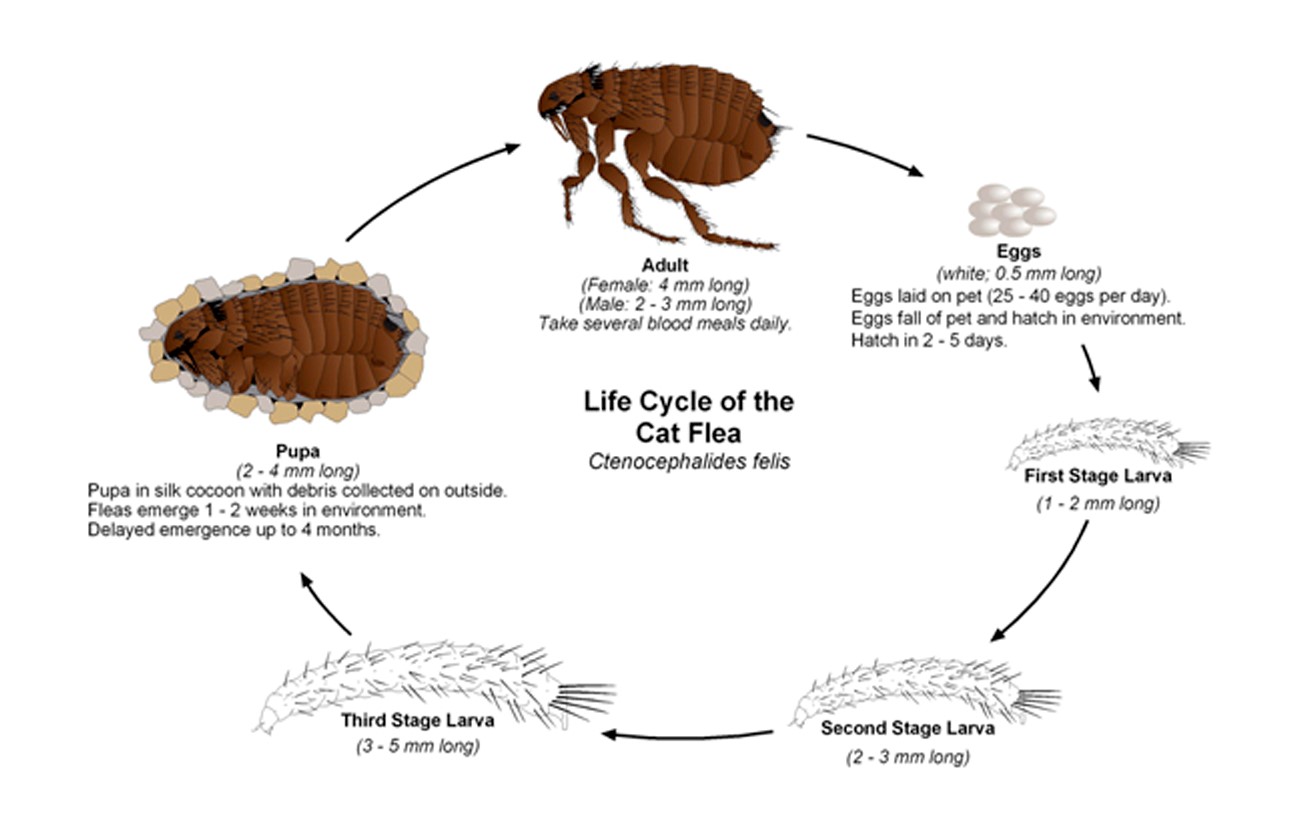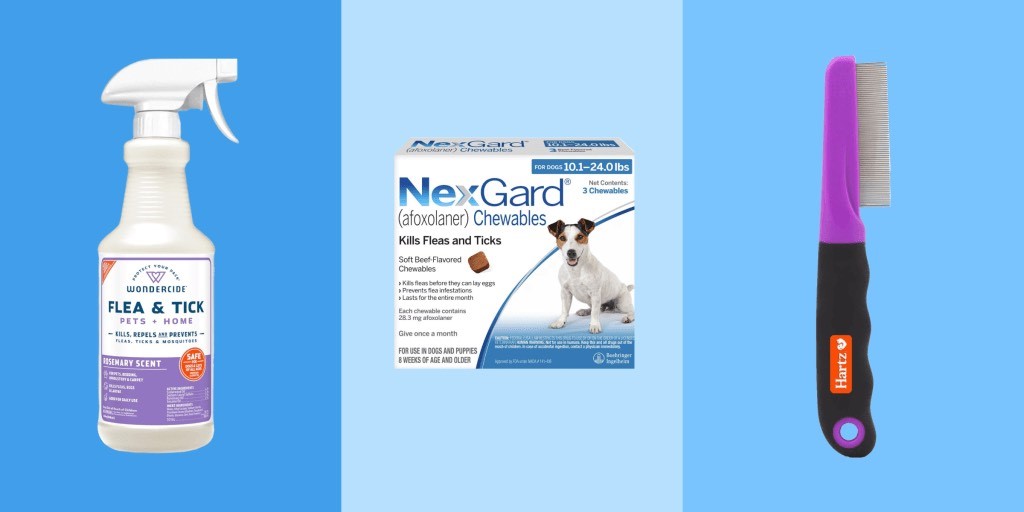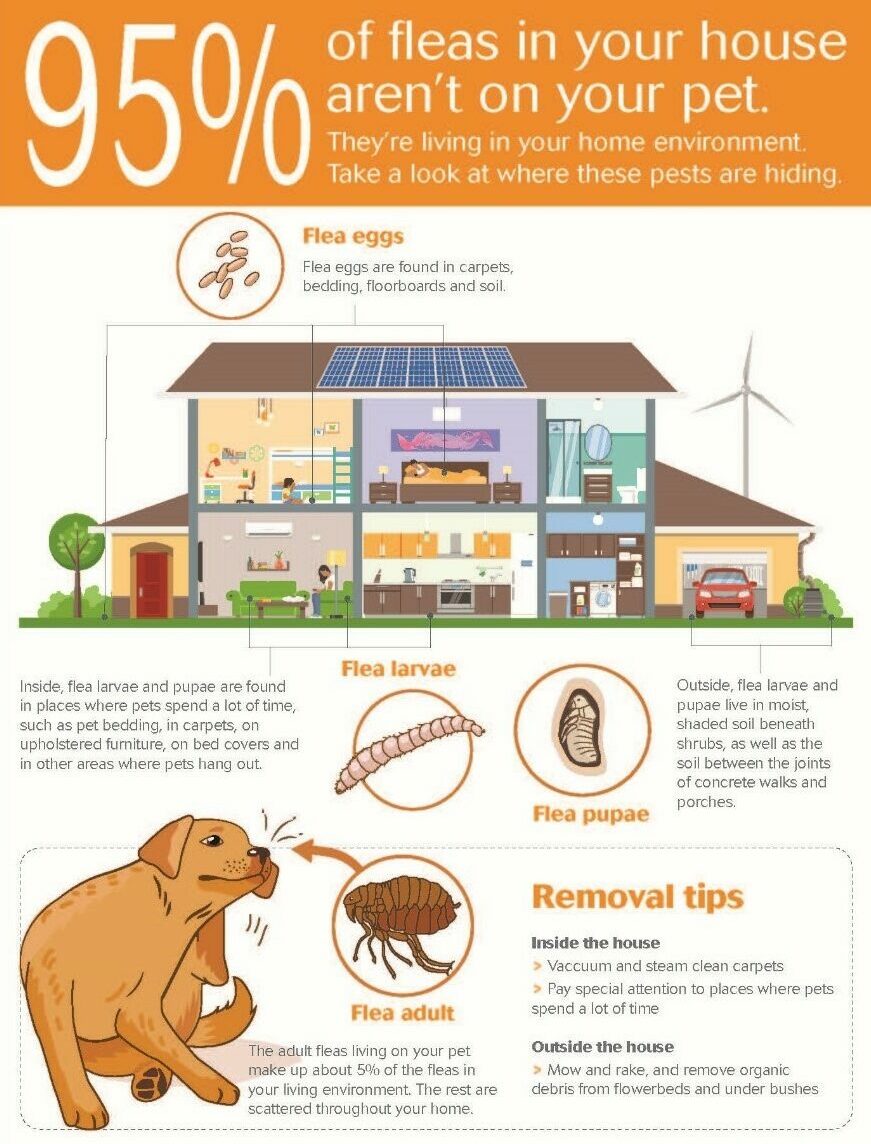Flea treatment

Fleas are most often seen during the warmer months but as we keep our homes nice and warm throughout winter, we see fleas all year round. Only a small part of the adult flea population actually lives on your pet. The fleas’ eggs and larvae live in the environment and can survive for up to a year, so it is important to not only treat your animal directly for fleas but also decontaminate the environment as well. Wash your pet’s bedding using the hottest cycle and regularly vacuum/clean carpets. We do not recommend flea collars or flea shampoos alone as tend to be ineffective.
Fleas will tend to jump onto your pet only to feed and then jump off again. Dogs and cats can have a reaction to flea saliva resulting in a skin condition called Flea Allergy Dermatitis or FAD. Treatment of FAD can be complicated and veterinary consultation is recommended.
Some signs that your pet may have fleas include:
- Scratching, biting and hair loss, especially at the base of the tail and rump
- You may see fleas (especially over the rump and in the groin region)

Warning: Some non-veterinary brands of flea treatments for dogs are potentially lethal when applied to cats. Always seek veterinary advice about the best flea treatments for your pet.

For Pets
Topical treatments: Products like Frontline or Advantage are applied directly to the skin and can kill fleas and prevent new infestations.
Oral medications: Chewable tablets like Capstar can kill adult fleas quickly, while others like Comfortis provide longer-term protection.
Collars: Flea collars can provide ongoing protection, but their effectiveness varies by brand.
Shampoos: Special flea shampoos can help eliminate fleas but may need to be used alongside other treatments for lasting effects.
For the home
Vacuum regularly: Vacuum carpets, furniture, and pet areas to remove eggs and larvae.
Wash bedding: Regularly wash pet bedding and any fabric items in hot water.
Flea sprays and foggers: These can treat areas in your home and are effective for breaking the flea life cycle.
Diatomaceous earth: This natural powder can be sprinkled on carpets and floors to kill fleas by dehydrating them.
Prevention
- Regular grooming and baths for pets can help spot and eliminate fleas early.
- Maintain a clean home environment to reduce flea habitats.
Consult a Vet
For severe infestations or persistent issues, it’s best to consult a veterinarian for a tailored treatment plan.
